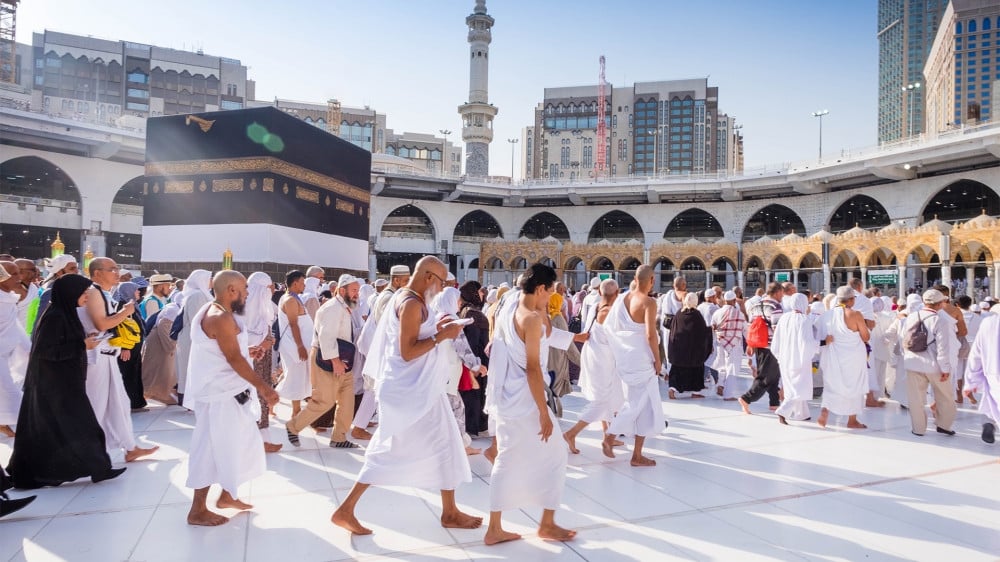The importance of Hajj in Islam and its religious status
We live in an era of modernity and secular concepts, and thus the importance of the Hajj process in Islam can be reduced for several reasons. However, we must understand that the pilgrimage is one of the five pillars of Islam and it occupies an important place in achieving the supreme goal of the religion, which is the association of faith with deeds. Through this article, we will focus on the importance of Hajj in Islam and its religious status, by relying on religious sources and an accurate overview of its various legal and social aspects.
The importance of Hajj in Islam and its religious status
The importance of Hajj in Islam lies in its great religious status and great virtue in the eyes of Muslims. Hajj is one of the five pillars of Islam, and its rituals are an important part of devotion and worship. Hajj involves performing a series of rituals and spiritual actions that bring the believer closer to God and enhance his spirituality. Through the verses of the Qur’an and the hadiths of the Prophet, we find a lot of evidence of the virtue of Hajj and its importance in the Islamic religion.
The concept of Hajj in the Arabic language
The concept of pilgrimage in the Arabic language refers to the intention of the most important thing. In legal terminology, Hajj means the intention of the Sacred House of God in Makkah Al-Mukarramah to perform specific rituals. This meaning is evident in the importance of Hajj as rituals in Islam and the commitment of Muslims to it to achieve closeness to God.
The origin of Hajj in Islamic law
Hajj is one of the five pillars of Islam, as it was commanded by Islamic law. The Prophet Muhammad mentioned that Islam was built on five pillars, including the pilgrimage to the House for those who can reach it. Hajj is a sacred religious ritual with deep roots in Islamic history.
The importance of Hajj as rituals in Islam
Hajj occupies an important place in Islam as rituals and religious rituals. It is not just one of the pillars of Islam and one of the five impositions, but rather a school to learn obedience and detachment to God and the exit of the Muslim from his psychological desires. In addition, the pilgrimage enhances the interdependence and cohesion of Muslims and unites their nation, and teaches them the value of patience and humility.
Quranic verses refer to the virtue of Hajj
In the Holy Qur’an, we find many verses that refer to the virtue of Hajj and its importance in Islam. Among them is the verse of Hajj, which is information in Surat Al-Baqarah, which shows that Hajj has known times for people, and this indicates that God Almighty gave Hajj a special value and status in the Islamic religion.
Hadiths of the Prophet confirm the importance of Hajj
The hadiths of the Prophet emphasize the importance and virtue of Hajj in Islam. There are many hadiths from the Prophet Muhammad that encourage Muslims to perform the Hajj and remember its great reward. Muslims must take advantage of this great opportunity to visit the Sacred House of God and perform the rituals with their various orientations.
Stories of the Prophets and their relationship to Hajj
We cannot overlook the relationship of the pilgrimage to the stories of the previous prophets, as many of the stories of the prophets are closely related to the status of the pilgrimage in Islam. Among these stories is the story of our master Abraham, peace be upon him, and his son Ismail, where Abraham built the Holy Kaaba by order of God, and it is the place to which Muslims turn during the pilgrimage. These stories reflect the importance of Hajj in the history of Islam and the close relationship it has with the stories of God's prophets.
Hajj is one of the pillars of Islam
Hajj as a pillar of Islam is an essential part of the religion and has great importance in the life of a Muslim. Hajj is considered a school that teaches obedience, impartiality, and humility before God. Hajj is also an opportunity to learn about the bonding and unity of Muslims and a combination of spiritual and religious experiences that enhance one's spiritual strength.
The example of the Prophet Muhammad in Hajj
The Prophet Muhammad's example of Hajj reflects the importance of this religious ritual in Islam. The Prophet performed the Hajj himself and set a good example for us in performing all the rites of Hajj. It indicates devotion and emphasis on performing the Hajj in the correct manner in accordance with the Sharia and the teachings of Islam.
The spiritual virtues of Hajj
One of the great spiritual importance of Hajj in Islam is to enhance communication with God and to draw closer to Him. Hajj is an opportunity for a Muslim to renew his faith, purify his heart, and reflect on the meanings of life and sacrifice. Spending the days of Hajj in Makkah Al-Mukarramah and participating in circumambulation and stoning imparts to the Muslim a strong sense of harmony with God and inner peace. This spiritual virtue promotes a sense of humility and devotion, and increases a Muslim's desire to follow Islamic principles in his daily life.

